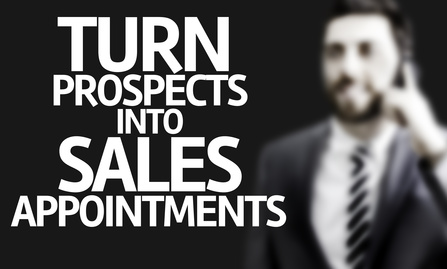I get to read a lot of prospecting messages. From different sellers, with varying levels of experience. And from a wide range of industries. These messages land directly in my inbox; or are brought to class by trainees seeking peer and expert feedback. Despite the widespread availability of “how to prospect” advice, on and off line, there are a handful of seemingly innocuous statements that regularly show up in seller’s e-mails; and that guarantee your place in the abyss of no response.
Here are five examples, taken verbatim from actual e-mails, that should never be seen in your message to a new contact. Never!
1. “I’d like to get 5 minutes of your time.”
Liar, liar pants on fire! We all know that this is a classic “bait and switch” technique. You know you expect, and plan, to take more time. I don’t know any mentally stable buyer who buys this line.
I do like that you are putting a time parameter on your call. Just be honest. Be realistic. And minimize the risk by letting me know specifically how you plan to use my valuable time. It will encourage me to respond. Assuming you’ve shared something relevant in your e-mail, you might say something like, “Jill I’d like to schedule an introductory 15 minute call to get your perspective on the above and to share results we’ve achieved with other professional services firms.” OK now it sounds doable, believable and a good use of my precious 15 minutes.
2. “Our greatest differentiation is our dedication to long-term relationships and our attention to detail.” And from a different seller: “What sets us apart: Team of seasoned professionals. Attention to detail. Smooth operations. Financial stability.”
OK here’s some tough love. There’s not even a whiff of differentiation in these unoriginal claims. They do nothing to “set you apart.” Every one of them is a base-line expectation. It’s like trying to attract the right mate on a dating site by saying “I am upright and breathing. What more do you want?”
Give me something specific that shows you have thought about me. (That’s a differentiator right there.) Share your immediate relevance to my business.
[ctt tweet=”It’s like trying to attract the right mate on a dating site by saying “I am upright and breathing.”” coverup=”d1If0″]
3. “We work with companies like yours.”
I have no problem with this statement if your message includes some indication that you actually know what my organization does. And that you understand what’s important to “companies like mine.” But I see a proliferation of e-mails making this claim with nothing to substantiate it. Frankly I don’t believe you. And, in the unlikely event I do respond, you’d better be ready to answer two questions, “Specifically who, like me, have you done work for? And what results did you achieve?”
4. “We have proven expertise.”
Says who? You? You’re paid to say this! If you have proven expertise, quote the source that corroborates it. Did you win an award? Do you have examples that authenticate your claim? Have you included a client testimonial that provides proof of your impact on their organization?
[ctt tweet=”If you have proven expertise, quote the source that corroborates it.” coverup=”U8fx8″]
5. “I look forward to hearing from you.”
This, or some variation of the same, seems to be the favorite sign off line in e-mails and voice mails. It’s a lovely sentiment. But you know that the odds of hearing from me are one step below a lottery win. And here’s the bigger concern. You’ve just given up control of the sales process. Always close your message with a clear articulation of your next step. Here’s an example, “John, I’ll follow up with a call on Thursday. If you wish to connect before then, I may be reached at … email and phone.” This tells your prospect three important facts. You are serious about connecting with me. You are not going away. You would welcome a response.
[ctt tweet=”Don’t give up control of the sales process. Always close with a clear articulation of your next step.” coverup=”65yhf”]
Using these banal lines in your sales messages suggests that you expect a buyer to be impressed with stuff that takes you all of 60 seconds to create or ‘paste and stick.’ Now that’s one heck of a misplaced sense of entitlement. And the fastest route to the delete file.
Good selling.


